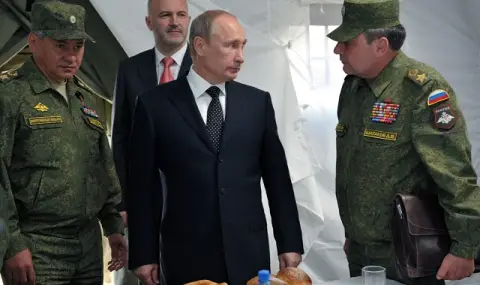The US Office of the Director of National Intelligence (ODNI) declassified documents related to the targeted killings of Russian President Vladimir Putin's political enemies, Bloomberg writes.
After a series of deaths over the years - such as the poisoning of Alexander Litvinenko in London in 2006, the shooting of Russian politician and Kremlin critic Boris Nemtsov and the death of former press minister Mikhail Lessin, who died in Washington and whom police said that his death was the result of a series of falls in his room, the House and Senate Intelligence Committees demanded answers.
In 2016, lawmakers inserted an intelligence spending bill that tasked the Office of the Director of National Intelligence with preparing a classified assessment of "the use of political assassinations as a form of statecraft by the Russian Federation since January 1, 2000."< /p>
The congressional directive also called on the ODNI to produce a list of prominent Russians, including politicians, businessmen and journalists, "who the intelligence community believes were killed by Russian security services" and to describe how and where they were killed.
Lawmakers gave ODNI about six months - until mid-July 2016 - to prepare an assessment, at which time then-Republican presidential candidate Donald Trump called on Russia to find the missing emails of Democratic rival Hillary Clinton, and US officials accused Russia of meddling in the election.
The report, prepared in 2016, was sent by ODNI a few days ago to Bloomberg.
The July 11, 2016 document is titled "Kremlin-ordered killings abroad likely to continue," but only two pages were sent. A footnote on the front page states that it only applies to murders abroad committed "since Putin took power in 2000". According to Bloomberg, a letter sent by the ODNI attached to the report noted that portions of it were withheld to protect classified foreign government information and classified intelligence activities.
According to the assessment, the ODMI report noted that "the first clear case" of Putin, who ordered an assassination abroad, took place in 2004. in Qatar. There, two Russian military intelligence officers were convicted of murdering Chechen leader Zelimkhan Yandarbiev, who had been designated a terrorist by the United States and the United Nations.
It goes on to mention Litvinenko and conclude that "Moscow almost certainly ordered the assassination in 2006", and that the Putin government was "probably involved in targeting other high-ranking figures for political assassinations. basis, but we have only low to moderate confidence in this decision, as there is less direct and credible evidence of the Kremlin's direction than in the case of Litvinenko".
The report also said Putin's targets included intelligence defectors or dissidents, such as Russian businessman Alexander Perepilichny, who was allegedly "killed with a biological toxin in the UK in 2012, a little before testifying about a Kremlin tax fraud network". But at the time, UK authorities said his death was not suspicious. The investigation concluded that Perepilichnyj "probably" died of natural causes.
Furthermore, other high-ranking individuals are identified by name, whom Putin "probably" has ordered their killing, and is noted to be targeting "recalcitrant separatists in Ukraine" as well, such as the 2015 death of Alexander Bednov, who headed a militia unit called "Batman".
